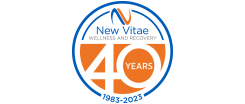Concussion: Mild Brain Injury:
Concussive brain injury (CBI), also known as mild traumatic brain injury (MTBI), although quite prevalent, is still poorly understood by many healthcare professionals.
CBI incidence, which is likely underestimated, accounts for 80 to 85 percent of all traumatic brain injuries that occur each year in the United States. Falls are the most frequent cause of CBI, followed by blunt force trauma (as in sports injuries), vehicular accidents and assaults.
Consequences of a CBI can include cognitive, behavioral, physical, emotional, and social function difficulties, which can certainly create relational, vocational and daily-living challenges.
CBI has been defined as a dramatically induced physiological disruption of the cerebral function, as manifested by at least one of the following:
- loss of consciousness of longer than 30 minutes
- any loss of memory, either retrograde or anterograde(with post-traumatic amnesia being longer than 24 hours
- any alteration in mental status at the time of the accident, even on the absence of the loss of consciousness or amnesia
- physical symptoms which are potentially brain-related (e.g. nausea, headaches, dizziness, tinnitus, visual aberrations, olfactory deficits, or extended periods of fatigue)
- development of post-traumatic cognitive deficits, which cannot be completely accounted for by emotional factors.
Most people who sustain a CBI, assuming there are no other significant injuries, experience recovery within 2 to 4 weeks of the injury. When the symptoms persist, the next diagnosis to consider is Persistent Post-Concussive Syndrome (PPCS). Anxiety can increase symptom perception and health concerns. Sensitization may be especially relevant for post-concussive symptoms that may occur. Depression, post-traumatic stress disorder and other anxiety conditions in which there can be a high degree of sensitization or magnification of symptoms can represent impediments for recovery.
There are no agreed upon treatment protocols for post-concussion symptomatology. Based on current evidence-based guidelines, athletes should not return to play until their symptoms have subsided, their neurological exam is “normalized,” they are no longer taking medications for treatment, and they receive their doctors’ approval. Employment determinations should be made based on the ability of the injured person to work, with or without accommodation.
Appropriate and timely referral to other specialists including psychologists, neuropsychologists, physical and occupational therapists, speech language pathologists, and vocational
rehabilitation specialists may all be relevant in the context of addressing impairment and disability in those with more persistent problems.
Reference Source for this article: Zasler, N. D. (2019). Concussive Brain Injury: A brief primer for healthcare professionals. Brain Injury Professional, 16 (1), 20–25.
For additional guidance, contact The Concussion Legacy Foundation General Inquiries: info@concussionfoundation.org
Dr. Mary S. Cowgill




